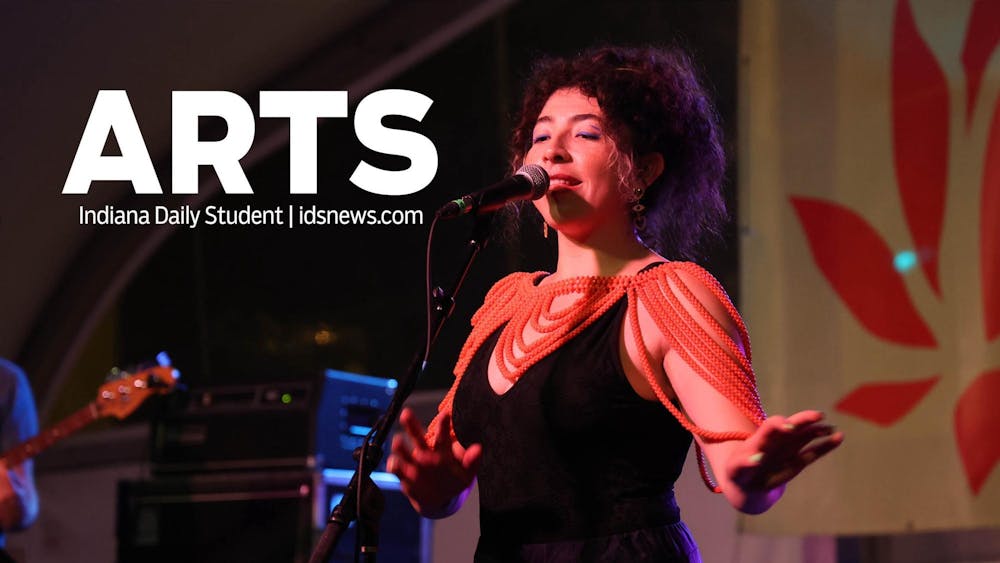On Saturday, dozens of women of all ages gathered in the IU Education Building to celebrate the strengths of womanhood at the International Women’s Day Conference hosted by the Office of International Studies. They wore matching T-shirts as they listened to a powerful keynote speech, attended several workshops and engaged in conversations about furthering female empowerment. The conference was centered around a specific theme; “Future in Focus: Understanding Women’s Strengths and Unlocking Potential.”
Conference co-chairs and IU students Feihong Yu, a second year Master’s student, and Hyun Ji Kim, a senior, planned the day’s events.
The conference began with a presentation from its keynote speaker, Mary Maker, a South Sudanese refugee and education activist. During her time as a student at St. Olaf College in Minnesota, Maker founded the non-profit organization Elimisha Kakuma, which works to provide refugees who have graduated high school with opportunities to pursue higher education.
She is also a goodwill ambassador for the United Nations High Commissioner for Refugees. In her speech, Maker detailed her life story and how her experience growing up in a Kenyan refugee camp led her to prioritize education for girls and refugees.
Throughout her speech, Maker also recited several poems she’s written about her experiences. One poem expressed her admiration for her late mother’s strength, resilience and embodiment of African culture, as well as the ways in which her mother’s spirit remains with her.
“Her song can noise cancel the sirens seducing my people to the sea and the propaganda seeking to erase her soul,” Maker said. “She can be the voice that allows me to sleep, and the soundtrack to my dreams.”
Maker said in an interview she viewed her late mother as a symbol of hope and planned her speech around that idea. When planning this particular speech, she said she found it important to offer the audience a comprehensive glimpse into who she was as a person. Maker detailed her past struggles by sharing her writing and poetry about her experience as a woman and refugee, including visuals depicting life in a refugee camp.
“I love poetry,” Maker said. “I write a lot of poetry, and for this event I started writing poems based on what it is to be a woman. My inspiration comes from so many things.”
In another part of Maker’s speech, she encouraged her audience to consider the women who have impacted their lives. She urged audience members to close their eyes and think of a specific woman and how she has contributed to their lives.
The auditorium grew silent as attendees closed their eyes. Every person was transported to a reminiscence of special memories, and the room was filled with an energy of emotional reverence.
“The women that give us conviction every day, the women that remind us that we can do anything in the world, the woman that takes you out to lunch or buys you the new dress, who gives you the best gift on Christmas,” Maker said to help the audience visualize. “I want you to hold on to that woman and understand the role that she plays in your life and the conviction that she gives you every single time.”
After Maker’s speech, attendees could visit various workshops on topics like solo traveling, soft skills in the digital age and mindfulness at work. Yu and Kim said all 15 workshops were led by staff or PhD students from different academic departments. Each circled back to the event’s theme: encouraging women to harness their inner strengths and unlock their full potential.
Mai-Lin Poon, associate director for international student life at OIS, emphasized the importance of hosting a diversity of workshop topics.
“They may be some topics that people really need and topics that aren’t necessarily paid attention to, especially when it comes to women,” Poon said.
After the sessions, the event concluded with a reception for attendees to network and socialize with each other. Guests could help themselves to free food, T-shirts, tote bags and stickers.
“We want the attendees to leave the conference with something in their mind, like what kind of strengths they understand of themselves and what kind of power they have,” Yu said. “And they can also use that to help others.”






